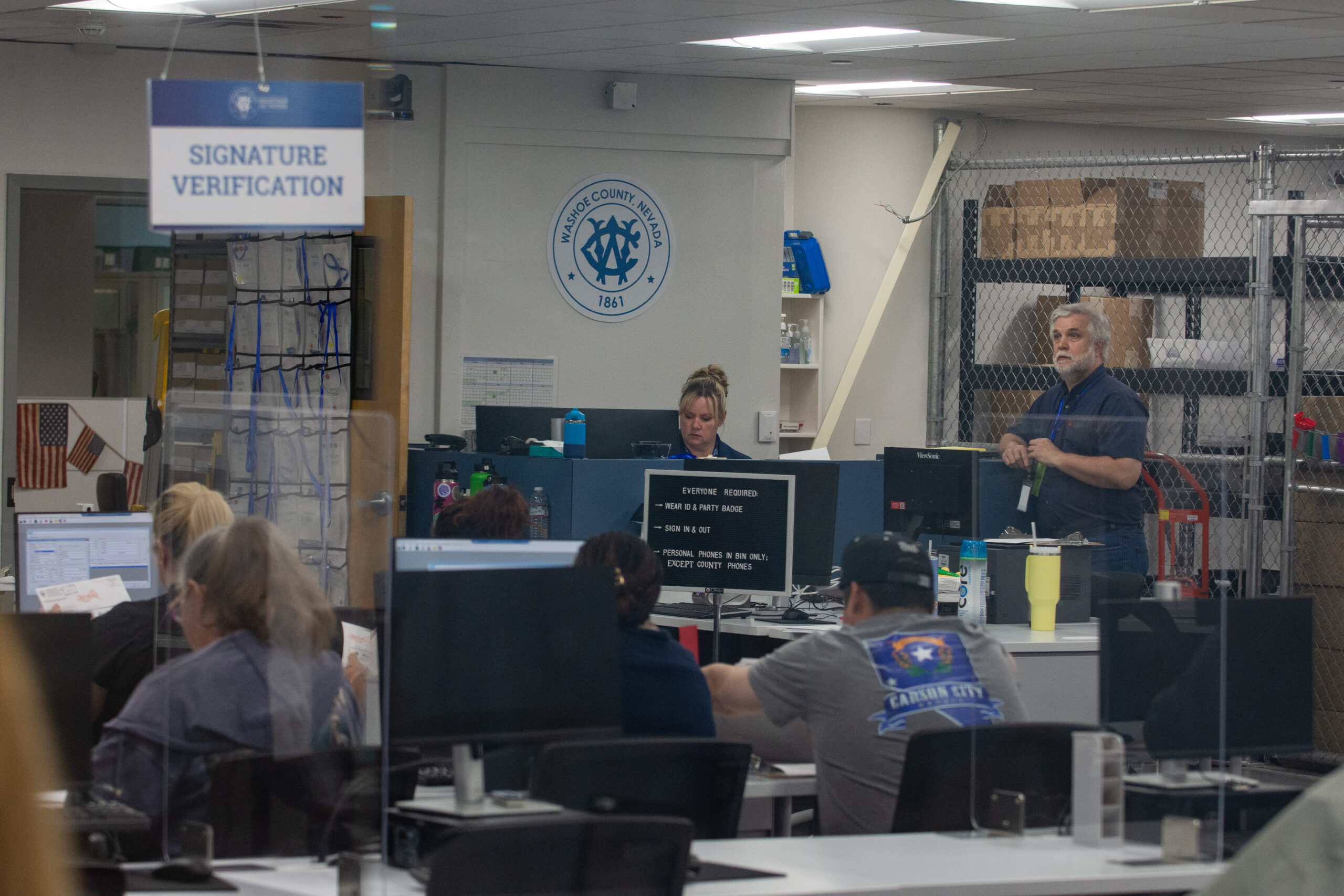The results weren’t even close.
Two candidates — Mark Lawson and Paul White — lost their elections by wide margins. Lawson lost his primary election for the Washoe County Commission by 1,725 votes; White, meanwhile, only reached fourth place in an election for a Washoe County School Board trustee seat where only the top two candidates advanced to the general election.
Flush with someone else’s money, however, they asked for and received a recount. It was, as state law required, completed using the exact same methods used to count the ballots the first time.
The result? It still wasn’t close. White gained exactly one of the more than 2,000 votes he needed to reach second place. Lawson, meanwhile, lost a vote.
The obviousness of the results, however, didn’t prevent the Washoe County Commission from making the worst sort of history by inexplicably refusing to certify the primary election recounts. The reason? Egged on by an angry froth of protestors who didn’t like the election results and a waffling assistant district attorney who frankly should have known better, the county commissioners chose to “vote their conscience” — and their consciences informed them that losing candidates should be allowed to decide for themselves how ballots are recounted.
Lawson and White (or, at least, their rich benefactor), it turned out, wanted their ballots recounted by hand. Which, sure — but why stop there? Let’s let losing sports teams decide which revision of the rulebook to play a rematch under while we’re at it. Perhaps the Raiders and Patriots can replay the Tuck Rule game using an NFL rulebook from 1956.
Why 1956, you ask? That’s the year Washoe County stopped counting ballots by hand and started counting ballots using voting machines. Even in those days, it was well understood that it’s quite difficult to accurately count tens of thousands of ballots by hand. Additionally, hand-counted ballots had the nasty habit of disappearing, as voters in Athens, Tennessee, observed with fiery anger following an especially contentious election.
That said, let’s ignore for a moment the merits (there are none) and drawbacks (there are several) of counting ballots by hand.
It takes a special leap of self-serving logic to assume losing candidates should be allowed to decide how recounts are conducted after the election has occurred. Certainly neither Lawson nor White would have demanded a hand recount if they won the primary election using electronic voting machines, after all, nor would their wealthy benefactor have been predisposed to funding one. So why should we take their concerns regarding election machines seriously after they lose?
Besides, once you crack the door of letting losing candidates choose their method of recount, why stop with a hand recount? Why not let candidates demand a hand recount using only a small number of ballots and some statistical sampling — the same technique used, in fact, to perform post-election audits? Or perhaps candidates should be able to demand a recount through a phone poll conducted against all voters who cast votes — press “1” if you voted for Paul White, press “2” if you voted for someone else.
Oh, you didn’t answer your phone? Tough break — guess your vote won’t count after all.
Surprisingly, this entire saga would have benefited from one final leap of self-serving logic. Or, failing that, a simple act of political self-awareness.
The candidate who won Lawson’s primary, incumbent Commissioner Clara Andriola, initially cast the deciding vote against certifying the recount of her own election. Then, demonstrating the depth of conviction one might expect from a shallow puddle during a hot summer day, she announced 24 hours later that she changed her mind, actually, and would appreciate a recount (OK, a “reconsideration”) of the vote she previously cast against herself. Less than a week later, she and fellow commissioner Mike Clark changed their votes and elected to certify the recount after all.
Truly a profile in courage.
To be fair to Andriola, she at least realized her vote placed the Washoe County Commission on a legal and political minefield. The same cannot be said for Commissioner Jeanne Herman, the lone vote against certifying the recount the second time around, who declared that, “there are hills to climb on, and there’s hills to die on. This might be one of those.”
I’m going to say this once and once only, so print this sentence out and frame it — Herman is absolutely right. This is indeed a hill to die on.
She and her allies, however, are on the wrong side.
If Herman wants to actually preserve integrity in elections and minimize fraud, a good first step would be to agree to honor the laws and regulations pertaining to elections in the state. Encouraging candidates to attempt to rewrite those rules on the fly after an election goes against her friends is a recipe for fraud, graft and gamesmanship.
Failing that, she, along with the rest of the county commission, can meet the attorney general and secretary of state in court. Her colleagues may have talked themselves out of doing something illegal after they already broke the law, but they still broke the law.
Elections do indeed have consequences — especially when elected officials refuse to accept the results.
David Colborne ran for public office twice. He is now an IT manager, the father of two sons, and a weekly opinion columnist for The Nevada Independent. You can follow him on Mastodon @[email protected], on Bluesky @davidcolborne.bsky.social, on Threads @davidcolbornenv or email him at [email protected].

